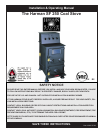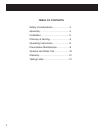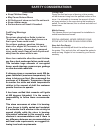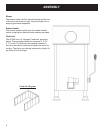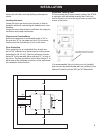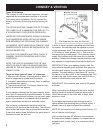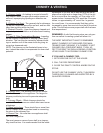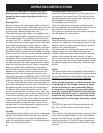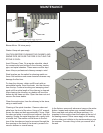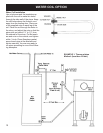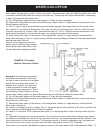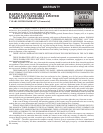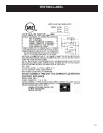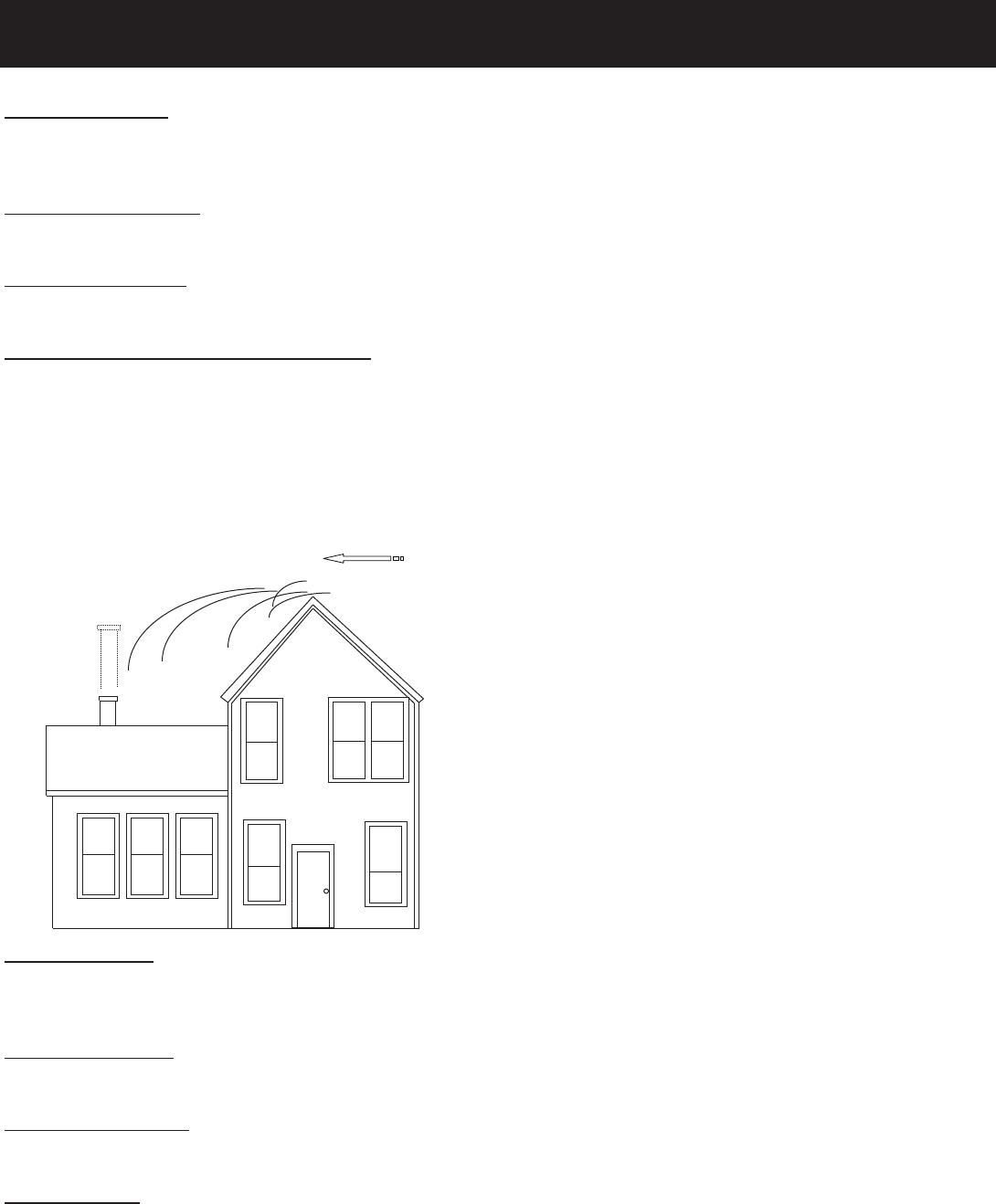
7
CHIMNEY & VENTING
Possible causes of insufcient draft;
A. Chimney Leaks - Air leaking in around a loose t-
ting cleanout door, ue pipe joints and/or seams not
secured, improper plug openings or defective ma-
sonry.
B. Chimney Too Short - The general rule for chimneys;
16 feet tall, three feet above the roof exit, and two feet
taller than anything within ten feet.
C. Blocked Chimney - Have the chimney cleaned and
inspected prior to installation and before each heating
season.
D. Trees Or Other Topographical Barriers - Impeding
on the chimney’s operation or causing a down draft
situation. This can also be caused by adjacent build-
ings or another roof of the same structure giving air
currents a downward swirl.
NOTE: The chimney on the illustrated house is too
low, it should be raised to compensate for down draft
potential.
E. Chimney Size - The chimney can not be smaller
than the ue exit from the appliance. Too large of a
chimney could stay too cool to promote adequate
draft.
F. Chimney Offsets - Offset chimneys should be
avoided. The offset area can collect debris and cause
a blockage.
G. Elbow restrictions - There should be no more than
two 90° elbows or the equivalent used in connecting
the stove to the chimney ue.
H. Shared Flue - No more than one appliance shall
vent into a single ue.
The most common cause of poor draft is an improp-
erly sized ue liner. It is recommended that the inside
Wind direction
dimensions of the liner be at least as large as the ap-
pliance ue outlet and no larger than 125% of the col-
lar for a round ue. An example, a 8” ue collar is 50
square inches. Increased by 25% would be 63 square
inches, or approximately a 9” round ue. In general
for round liners, it is recommended that they not be
increased by more than one inch from that of the stove
collar. This will help ensure proper draft with the lower
ue temperatures.
REMEMBER; A solid fuel burning stove can only per-
form as well as its venting system will allow it to.
THE MOST IMPORTANT THING TO REMEMBER
ABOUT CHIMNEYS IS THEIR NEED FOR MAIN-
TENANCE AND CLEANING. IF A CHIMNEY IS NOT
CLEANED ON A FREQUENT BASIS, IT WILL AF-
FECT THE DRAFT AS WELL AS BEING A CONTRIB-
UTING CAUSE TO A POSSIBLE CHIMNEY FIRE.
IF YOU HAVE A CHIMNEY FIRE:
1. GET EVERYONE OUT OF THE HOUSE.
2. CALL THE FIRE DEPARTMENT.
3. CLOSE THE DRAFT CONTROL KNOBS ON THE
STOVE.
DO NOT USE THE CHIMNEY UNTIL IT HAS BEEN
THOROUGHLY CLEANED AND INSPECTED BY A
QUALIFIED PERSON.



